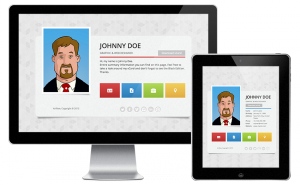 When it comes to writing their resume, many people wonder exactly what details they should be sharing and what they should be keeping to themselves. Remember that your resume is a professional document intended to demonstrate your skills, experience, and accomplishments to potential employers. It is designed to land you an interview, not disclose your life history. There are many elements that are better left off. Just because you share these details with your Facebook friends does not mean you should share them on your resume.
When it comes to writing their resume, many people wonder exactly what details they should be sharing and what they should be keeping to themselves. Remember that your resume is a professional document intended to demonstrate your skills, experience, and accomplishments to potential employers. It is designed to land you an interview, not disclose your life history. There are many elements that are better left off. Just because you share these details with your Facebook friends does not mean you should share them on your resume.
- Photograph: What you look like has no bearing on your ability to do the job, unless perhaps you’re a model or actor. Leave your picture off. They’ll get to see you in an interview. Additionally, including it can leave room for unintentional discrimination.
- Personal Information: Whether you’re single or married, have children or pets, how old or tall you are, or what your driver’s license number is also have no place on your resume. Focus on information that is directly related to the job. Keep your contact information limited to address, phone number, email, and LinkedIn link.
- Hobbies: There are rare instances where your hobbies may be directly related to the job, but for the most part they are just taking up valuable space. If you’re applying to be an accountant or an HR generalist, it doesn’t matter that you can play piano, enjoy fly fishing, or can cook a mean pot roast. Employers want to know how you are going to benefit their company.
- Salary: If the job opening asks for salary history or requirements, this is something that you can include as a separate attachment. Listing what you made in each position can quickly become a turnoff and work to your disadvantage. The employer may feel you won’t accept the job because it pays less than you made before. Salary is something to be discussed and negotiated much later in the process.
- Reason For Leaving: You want your resume to focus on the positives and what you accomplished in each role. Whether you chose to leave, got laid off, the company closed, or you decided to stay home and raise your kids is not something that you need to highlight. If the employer wants to know more, they will inquire during an interview. Putting this information on your resume can raise questions.
- References: This is another element that should be a separate attachment. If an employer wants them, they will ask. No need to take up already limited space on your resume by listing them out.
Keep your resume clear, concise, and professional. If you question whether something is necessary or adds value, you can probably leave it off. Try to look at your resume from an employer’s perspective and think about what they need to know in order to see you are a good fit for the job.
This article was syndicated from Business 2 Community: Your Resume Isn’t Your Facebook Page – Don’t Treat It As Such
More Business & Finance articles from Business 2 Community:




